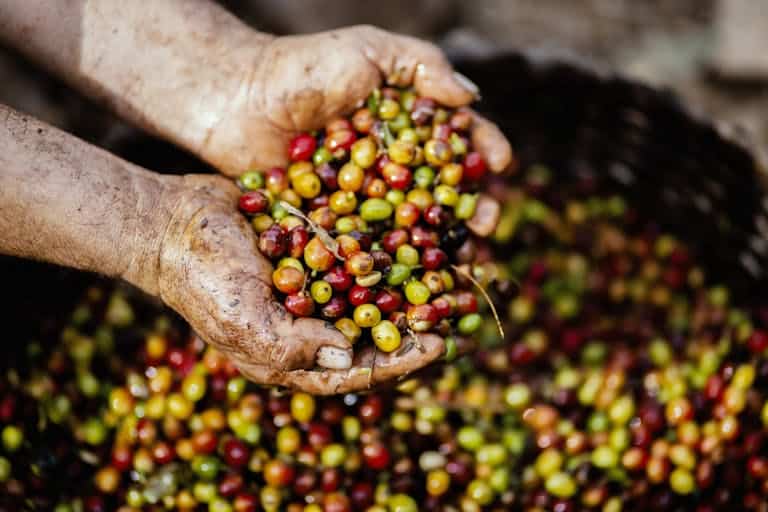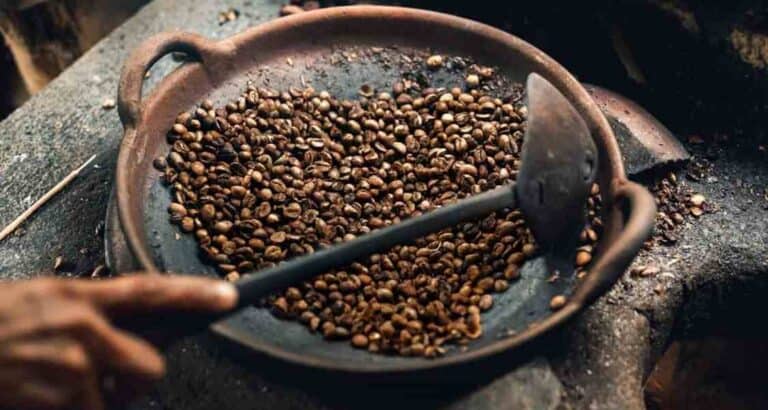7 Surprising Coffee Facts You Didn’t Know in 2024
Did you know that over 2.25 billion cups of coffee are consumed worldwide every single day? That’s right!
Coffee isn’t just a morning pick-me-up; it’s a global phenomenon with a history as rich as its flavor. today
In this article, we’ll dive into seven surprising Coffee Facts you probably didn’t know about coffee.
Whether you’re a casual coffee drinker or a full-blown aficionado, these fun facts will give you a fresh perspective on your daily cup of Joe.
Get ready to have your mind brewed—pun intended!
The Origins of Coffee: More Than Just Ethiopia:
Ethiopia is often hailed as the birthplace of coffee, but its true origins have layers of history and myth that make the story even more fascinating. While Ethiopia is widely accepted as where coffee was first discovered, its journey to becoming a global phenomenon is full of surprises.
The story of coffee’s origins begins with the ancient legend of Kaldi, a goat herder from Ethiopia. According to folklore, Kaldi noticed that his goats became unusually energetic after eating berries from a certain tree.
Curious, Kaldi tried the berries himself and felt a surge of energy, which eventually led him to a local monk. The monk disapproved at first but later discovered that the berries helped him stay awake during long hours of prayer. This legend, though charming, is just one piece of the coffee puzzle.
From the Ethiopian plateau, coffee made its way to the Arabian Peninsula, where it truly began to flourish. By the 15th century, coffee was being cultivated in Yemen, and soon, the drink became a cornerstone of Islamic culture.
Coffee Is One of the World’s Most Traded Commodities
Coffee is much more than just a beloved beverage—it’s a global commodity with significant economic impact. In fact, coffee ranks as the second most traded commodity in the world, second only to oil.
This staggering fact underscores the enormous demand for coffee, which fuels a multi-billion-dollar industry that spans continents and supports millions of people, from farmers to baristas.
Countries like Brazil, Vietnam, and Colombia are at the heart of this coffee-driven economy. Brazil, the largest coffee producer in the world, is responsible for around 40% of global coffee production.
Vietnam follows closely, primarily known for its robusta beans, which are often used in instant coffee. Colombia, famous for its high-quality arabica beans, also plays a crucial role in the coffee market.
These countries rely heavily on coffee exports, which are vital to their economies. In Brazil, for instance, the coffee industry employs millions, and fluctuations in coffee prices can significantly affect the national economy.
The journey of coffee from farms to your cup is a complex, global supply chain that involves multiple steps. It begins with coffee farmers, who cultivate and harvest the beans. These beans are then processed and sorted before being sold to traders and exporters.
Coffee Can Boost Your Health—But There’s a Catch
Coffee isn’t just a delicious pick-me-up—it may also offer several health benefits when consumed in moderation. Research has shown that coffee could help reduce the risk of certain diseases, such as type 2 diabetes, Parkinson’s disease, and even some types of cancer.
One of the key reasons for this is coffee’s rich antioxidant content, which helps combat inflammation in the body. Additionally, coffee has been linked to improving cognitive function.
The caffeine found in coffee stimulates the central nervous system, which can enhance memory, focus, and alertness, making it a favorite among those needing an energy boost or mental clarity.
Beyond these immediate benefits, coffee may also have an impact on longevity. Several studies have suggested that regular coffee drinkers may live longer than those who abstain.
For example, research published in the New England Journal of Medicine found that people who drank coffee daily had a lower risk of death from heart disease, stroke, diabetes, and certain types of cancer. This is thought to be related to coffee’s ability to protect against chronic diseases and support metabolic health.
However, as with most things, moderation is key. Too much coffee can have a downside. High levels of caffeine intake can lead to unpleasant side effects like anxiety, restlessness, and insomnia, particularly in individuals who are sensitive to caffeine.
Decaf Coffee Isn’t Caffeine-Free
The process of decaffeination is fascinating, but many people are surprised to learn that it doesn’t completely remove all the caffeine from coffee. Decaffeination methods generally aim to extract most of the caffeine from coffee beans, but trace amounts still remain, meaning your “decaf” cup isn’t entirely caffeine-free.
There are several methods used to decaffeinate coffee, with the Swiss Water Process and CO2 method being two of the most popular. Each technique removes about 97-99% of the caffeine content, but a small amount inevitably lingers.
So, how much caffeine remains in your decaf coffee? On average, an 8-ounce cup of decaffeinated coffee contains about 2 to 5 milligrams of caffeine, compared to a regular cup, which can contain anywhere from 70 to 140 milligrams.
While this amount is significantly lower, it’s still enough to affect those who are particularly sensitive to caffeine. Individuals who are highly sensitive to stimulants may still experience mild effects, such as increased heart rate or slight jitteriness, even from decaf coffee.
Coffee Was Banned Multiple Times in History
The history of coffee is not just about enjoyment and social gatherings—it’s also filled with surprising bans and controversies. Over the centuries, coffee has been seen as a threat by various religious leaders, monarchs, and governments, who feared its influence on society.
One of the earliest and most notable instances of a coffee ban occurred in Mecca in the early 16th century. Religious authorities were concerned that coffeehouses, where people gathered to discuss ideas and debate, were becoming centers for dissent and potential rebellion.
They viewed coffee’s stimulating effects as a threat, fearing it would lead to disruptive behavior and undermine social order. As a result, coffee was banned in Mecca for a time.
In 17th-century Europe, coffee faced similar resistance. When coffee first arrived in Italy, some clergy members were so suspicious of the drink that they called it the “bitter invention of Satan.”
It wasn’t until Pope Clement VIII tried coffee himself and declared it delicious that the drink was officially accepted within Catholic circles. However, coffee wasn’t out of trouble just yet. In countries like England, coffeehouses, known as “penny universities,” became popular places for intellectuals, writers, and political activists to gather.
Coffee Can Affect Your DNA
Recent studies have shown that coffee doesn’t just perk you up—it may even impact your gene expression. Research into the effects of coffee on our genes has revealed that regular coffee consumption can activate certain genes involved in metabolism, particularly those related to how the body processes fat and glucose.
These findings are exciting because they suggest that coffee might play a role in regulating weight, energy levels, and overall metabolic health.
One of the most interesting discoveries in this area is the connection between coffee consumption and metabolism. Coffee, specifically the caffeine it contains, has been shown to boost metabolic rates by stimulating thermogenesis—the process by which the body generates heat and burns calories.
This metabolic boost helps explain why some people find that coffee can aid in weight loss or weight management. Additionally, coffee can enhance the body’s ability to use fat as an energy source during exercise, making it a popular pre-workout choice for athletes and fitness enthusiasts.
Specialty Coffee Is on the Rise
The demand for specialty coffee has surged in 2024, as consumers are increasingly seeking high-quality, ethically sourced coffee that goes beyond the standard cup.
This growing interest is part of a broader trend, driven by a desire for more flavorful, sustainable, and artisanal coffee experiences.
Specialty coffee is not just about the drink itself—it’s about the entire process, from the careful cultivation of beans to the precise brewing methods used to bring out the best flavors.
So, what sets specialty coffee apart from regular coffee? First and foremost, it’s the quality of the beans. Specialty coffee is typically made from arabica beans, known for their superior flavor profiles, compared to the more common robusta beans used in commercial coffee.
These beans are often grown in ideal climates, at high altitudes, and are hand-picked to ensure only the best ones are selected. Additionally, specialty coffee must meet strict criteria in terms of taste, aroma, and overall quality, often being rated 80 or higher on a 100-point scale by certified coffee tasters.
Beyond the beans, the process of roasting and brewing plays a critical role in what makes specialty coffee stand out. The third-wave coffee movement, which emphasizes artisanal methods and sustainability, has transformed how we view and consume coffee.
in summary, coffee is more than just a drink—it’s a global phenomenon with a rich history, cultural significance, and even health benefits. From its origins in Ethiopia to its rise as a global commodity, coffee continues to influence economies and shape the way we connect.
As specialty coffee gains popularity, the focus on quality, sustainability, and craftsmanship has transformed our coffee experience. Whether you’re a casual drinker or a coffee enthusiast, there’s always more to discover in each cup. So, take a moment to savor it and explore the fascinating world behind your favorite brew!







